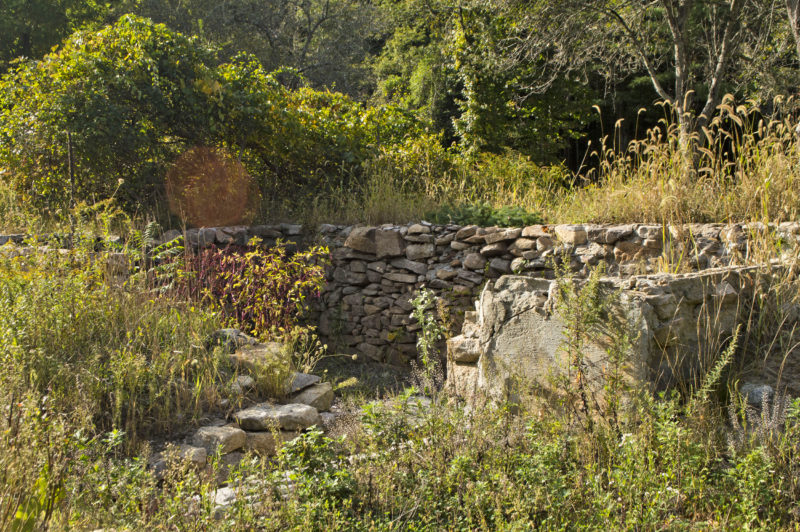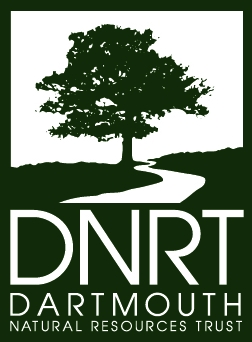Wernick Farm
Seek out a rich array of plants and wildflowers among woods and old agricultural remnants at Wernick Farm. Bordering the Southeastern Massachusetts Bioreserve, this former farm is now a Dartmouth Natural Resources Trust reserve, with short trails that offer interesting features and habitats to explore on foot.
Features

Wernick Farm’s agricultural past can be seen in old stone structures, like this former house foundation that sits along the trail.
Opened by DNRT in 2016, Wernick Farm was previously a family farm, where since 1956 the Wernick family kept animals and cultivated blueberry bushes. Today the property holds remnants of its agricultural past alongside captivating natural richness. Old stone walls, building foundations, and peaceful irrigation ponds remain from the former farm, as do bushes that grow heavy with blueberries every summer.
Wernick Farm borders the Southeastern Massachusetts Bioreserve, and the woods that surround the property contain the same rich diversity of trees, wildflowers, and wildlife that the bioreserve is known for. One patch of woods also contains a thick outcropping of puddingstone, an unusual multicolored rock created by passing glaciers during the last Ice Age.
Trails
Wernick Farm has six short trails, all less than a half-mile each. These rainbow color-coded trails are easy to follow, and they offer a fun afternoon of hopping between paths to discover their unique features. (Download trail map)
The Wernick Farm trailhead lies at the end of North Albro Avenue, a single-lane unpaved private road. Please drive slowly along this road and watch for oncoming cars. When the road forks, turn to the left to reach the trailhead and parking areas.
Starting from the trailhead, you’ll find yourself on the red trail, which will lead you to Wernick Farm’s four other trails. We recommend checking out the yellow trail, which snakes along the border of the property through oak, pine, and ash trees and leads you past a slab of puddingstone. Also worth a walk is the green trail, which begins in a field at the foundation of a stone house and guides you around the still waters of an old irrigation pond.
Habitats & Wildlife
If you’re interested in native plants, then you’ll find plenty to investigate in the woods and fields of Wernick Farm. Look for sassafras trees growing along the forest trails, and stop to breathe in the distinctive fragrance of its leaves, branches, and bark. In the summer and early fall, goldenrod and milkweed burst with color in open fields, while spicebush in the lowlands blooms with pale yellow flowers in early spring and turn bright yellow in fall.
Wernick Farm’s abundance of trees and flowers also makes it a hotspot for wildlife, including deer, foxes, and coyotes. Both sassafras and spicebush host the caterpillars of swallowtail butterflies, while milkweed provides the sole source of food for monarch caterpillars. Red-shouldered hawks have nested here for several years, and songbirds like Eastern phoebe, yellow-bellied sapsuckers, and ovenbirds can be seen flitting through the trees. In the spring, watch the undergrowth for the patient movements of nesting box turtles, a threatened species.

 Download Property Map
Download Property Map